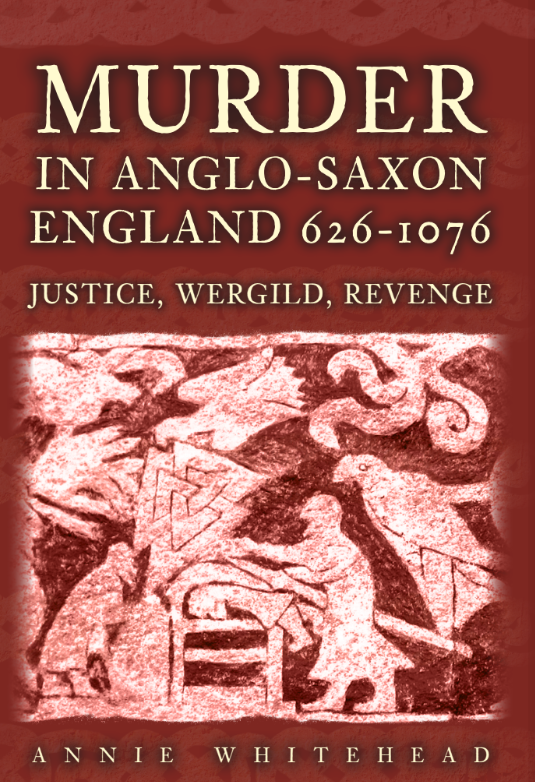October: Winterfyllēð "Winter full moon", according to Bede "because winter began on the first full moon of that month [of October]." As one who doesn't especially like winter and can barely tolerate autumn, I prefer not to think of October as the beginning of winter! But already we can see how so many Old English words survive unchanged to this day; there's no need to translate 'winter'.
When is the full moon this month? It will be on October 17 and will be called the Hunter's Moon. The Hunter's Moon is apparently so-named because it's an ideal time to hunt animals. It's also the first full moon after the Harvest Moon which this year occurred on September 18th.
Search for images for the month of October in medieval times and you'll find lots which feature wild boar. There's one which I can't share here due to copyright issues, but it has been described thus:
"A man on foot, with a spear, follows a group of pigs into a wood followed by a second man, also afoot and equipped with a spear, who is blowing a horn and leading dogs. The scene is usually described as 'feeding hogs' but the spears, dogs and horn suggest a more sinister explanation (from the pigs' point of view)." *
Pigs or boar were not the only animal hunted, and we know that deer were, too. Deor, the Old English word, could mean any wild animal, but we have heortas ('hart') and we know that both roe and red deer were hunted.
The nobility would also 'hawk' and here there is a nice word distinction, for it was hawking rather than falconry. Goshawk is an Old English word (goshafoc) and so is Sparrowhawk (spearhafoc) and the latter always makes me smile as it was the nickname of a metal-working monk, who pulled off quite a heist. You can read more about Sparrowhawk HERE
This year 1st October is a Tuesday: Tiwes daeg (Anglo Saxon Tiw, war god, related to Greek god Zeus), so Tiw's day, and if we remember that often the 'g' is a soft, 'y' sound, it's easy to see how we arrived at our modern 'Tuesday'.
Of course, October 1066 was rather a catastrophic month for the English, when the third major battle of that year took place and Harold Godwineson's luck ran out. It was an event of seismic proportions, drawing a line across English history (many books on that subject don't even mention anything before 1066) and changing the culture and landscape of England. But, as has been pointed out, but for a moment, it could have been a battle that no one really talked about. Had Harold not been killed that day, it would have joined the long list of fights that didn't really change anything and who know how the monarchy would have looked. Well, early on I can tell you that, since Harold was married to a Mercian, there'd have been Mercian blood in the next monarch's veins!
It is such a huge moment in history that a few years ago nine of us got together and wrote a volume of short 'What Ifs'. My contribution was to focus on that Mercian bride and her family, and think about a different fate for her brothers at the battle of Fulford.
You can read all the stories here: 1066 Turned Upside Down
October also sees the Feast Days of Saints Æthelburh, abbess of Barking, and Cedd, who also gets a couple of mentions in my new book.






